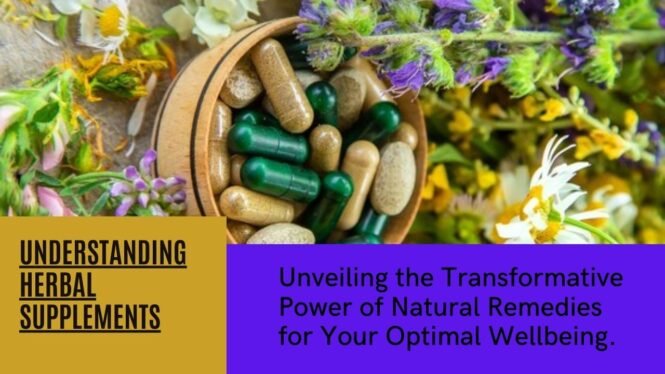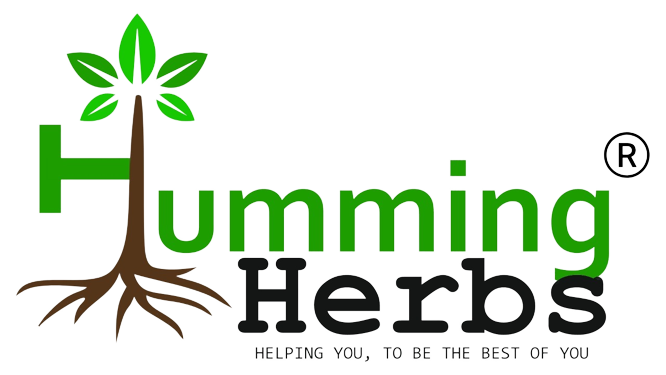- Your cart is empty
- Continue shopping
The quest for optimal health and wellness is as old as humanity itself, and throughout history, humans have sought to harness the benefits of the natural world to achieve this goal. Herbal supplements, rooted in the wisdom of traditional herbal medicine, have made a definitive comeback in the modern world. Today, they are celebrated as natural remedies that offer a complementary or alternative approach to conventional pharmaceuticals. In this exploration of the burgeoning world of plant-based supplements, also known as botanical supplements, we’ll delve into their benefits, supported by clinical research, and consider how they can contribute to a healthier you.
Historical Roots of Herbal Medicine
Herbal medicine, a cornerstone of traditional healing practices across various cultures, has evolved over centuries. Ancient texts from the Greeks, Egyptians, Chinese, and Indians offer a comprehensive account of the use of plants and herbs for therapeutic purposes. The knowledge and use of herbal medicine are still widely practiced in traditional Chinese Medicine (TCM), Ayurvedic medicine, and among indigenous cultures.
Understanding Herbal Supplements

Herbal supplements are preparations derived from plants that are used primarily for their medicinal or therapeutic properties. They can be made from various parts of the plant, including the leaves, roots, seeds, bark, and flowers, and come in numerous forms, such as capsules, powders, teas, extracts, or tinctures.
Unlike prescription medications, herbal supplements are not subjected to the same rigorous testing and regulation by the Food and Drug Administration (FDA) before they hit the market. This often leads to questions about their effectiveness, quality, and safety. However, the growing body of clinical research is helping to unpack the efficacy of these natural remedies and establish their role within the wider health and wellness industry.
The Benefits of Herbal Supplements

**1. Efficacy:** Herbal supplements have gained traction for their potential to address a multitude of health issues with fewer side effects than conventional pharmaceuticals. For instance, St. John’s Wort has been widely studied for its impact on mild to moderate depression, showing promise as an effective treatment.
**2. Fewer Side Effects:** Botanical supplements are often perceived to have fewer side effects compared to their conventional counterparts. For example, milk thistle, used traditionally for liver health, has been shown to be well-tolerated with minimal side effects in most individuals.
**3. Accessibility:** Herbal supplements are generally more accessible than prescription medications. They can be found in health food stores, pharmacies, and online, making them more readily available to those seeking natural health alternatives.
Support from Clinical Research
Scientific curiosity has led to a multitude of studies aimed at understanding the health benefits and mechanisms of action of various herbal supplements. Clinical research serves as a critical bridge between traditional knowledge and modern medical practice. Here are some key findings:
**1. Mondia Whitei: also known as Mulando or White’s ginger, is an African plant whose roots are prized in traditional medicine for various purposes. Extracts from this plant are reputed to have aphrodisiac properties, enhancing libido and performance. Additionally, Mondia whitei is believed to help with physical endurance and may have antidepressant effects. It’s also used for improving appetite, digestion, and general well-being. The plant’s root extract is rich in bioactive compounds that could support these uses.
**2. Turmeric for Inflammation:** Curcumin, a compound found in turmeric, has been widely researched for its anti-inflammatory effects. Studies indicate that it may be as effective as some anti-inflammatory drugs, without the side effects.
**3. Gingko Biloba for Cognitive Function:** Clinical trials have investigated the effects of Gingko Biloba on cognitive function, with some evidence suggesting potential benefits in memory and the treatment of Alzheimer’s disease symptoms. It improves focus and has been used by people to improve their brain function.
**4. Berberine for Cardiovascular Health:** The consumption of berberine supplements has been associated with improvements in several risk factors, such as reducing high cholesterol levels, lowering blood pressure, and improving blood sugar control. It may also help decrease the risk of atherosclerosis—the buildup of fats and cholesterol on artery walls—by preventing oxidative stress and inflammation. These properties suggest that berberine could support heart health and help prevent heart disease.
**5. Saw Palmetto for Prostate Health:** Saw palmetto is a herbal remedy extracted from the fruit of Serenoa repens, used primarily to support prostate health and treat symptoms of benign prostatic hyperplasia (BPH). It works by inhibiting the hormone responsible for prostate enlargement. While some studies show it can help improve urinary function in men with BPH, the evidence is mixed, and further research is needed
**6. Lion’s mane extract: Lion’s mane extract, derived from the Hericium erinaceus mushroom, is increasingly recognized for its potential cognitive and neurological benefits. It’s believed to stimulate the production of nerve growth factors, which may aid in brain cell growth and potentially improve memory and focus. This makes it particularly interesting for research into neurodegenerative diseases like Alzheimer’s. Additionally, the extract’s potential anti-inflammatory and antioxidant properties could support immune system health, enhance gut health, and possibly exhibit anticancer activities by inhibiting the growth of certain cancer cells. Early studies also suggest that lion’s mane may have mood-enhancing effects, helping to alleviate symptoms of anxiety and depression.
**7. Oyster mushrooms extract: Oyster mushroom extract, derived from the edible Pleurotus species, contains valuable compounds such as beta-glucans, which are known for their immune-boosting properties. It’s also rich in antioxidants that combat oxidative stress, potentially lowering the risk of chronic diseases. Studies suggest that oyster mushroom extract may aid in cholesterol management and support heart health, due to its natural statin-like effects. Moreover, it has been studied for its potential anti-inflammatory and anticancer properties.
8. Milk thistle (Silymarin) : Milk thistle with an extensive history of use for healthy liver function and provides powerful antioxidant protection. Humming Herbs Milk Thistle Extract Silymarin Capsules is specially formulated for cleansing the liver, as the health of the liver is very important for the overall health and functioning of the body. Helps with fatty liver, alcoholism, late night binging, fat metabolism.
9. Tart Cherry extract: This natural supplement is a powerhouse of antioxidants, including flavonoids, phytonutrients, and anthocyanins. It’s your secret weapon for athletic recovery, reducing inflammation, muscle pain, and cramps. It is used by various elite athletes to improve Post-Workout recovery and adaptations. It also Supports health and quality of Hair, Skin & Nails:
Potential Risks and Considerations
While herbal supplements offer a wealth of potential benefits, they are not without risk. The lack of stringent FDA regulation before market release means that consumers must exercise caution:
**1. Quality Control Issues:** Without strict regulation, herbal supplements may vary in purity and potency. This is why it is important to purchase your supplement from reliable source, Brands like humming herbs maintain the affordability of supplements without compromising quality.
**2. Individual Health Factors:** Factors such as age, health status, and genetics can influence how an individual reacts to an herbal supplement. It’s essential to consult with a healthcare professional before starting any new supplement regimen. Also, different herbs are meant for different people, there is no one solution for all, but a person specific herb should be taken.
Best Practices for Using Herbal Supplements
**1. Consult Healthcare Providers:** Always talk to your doctor before adding herbal supplements to your health regimen, especially if you have existing health conditions or are on medications.
**2. Choose Reputable Brands:** Opt for brands that have been third-party tested for quality and purity. Look for certifications that ensure the product meets certain standards. Humming herbs provides best in class supplements with no compromise in purity.
**3. Start Low, Go Slow:** If you begin taking an herbal supplement, start with a lower dose and gradually increase as necessary while monitoring your body’s response.
**4. Slow and Steady wins the race: ** Herbal supplements take their time to show long lasting effects, unlike chemical based products which comes with plethora of side effects. Have patience, give any herbal supplement enough time to show its effect.
Herbal supplements offer a natural and holistic approach to health and well-being. They are steeped in traditional knowledge and increasingly supported by clinical research. As consumers navigate the wide array of plant-based options available, it’s important to consider quality, potential interactions, and individual health factors. With informed decisions and professional guidance, herbal supplements can indeed become a powerful ally for a healthier you.

